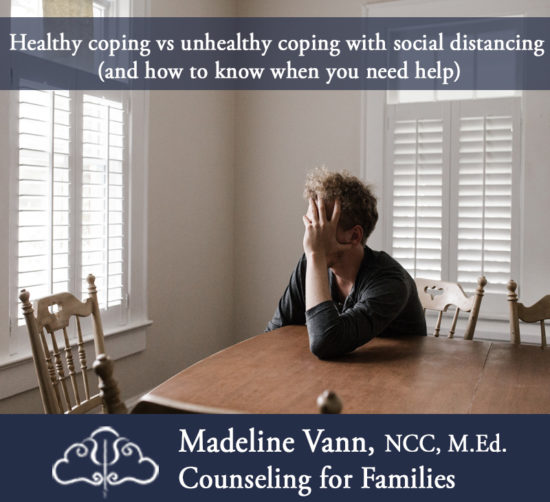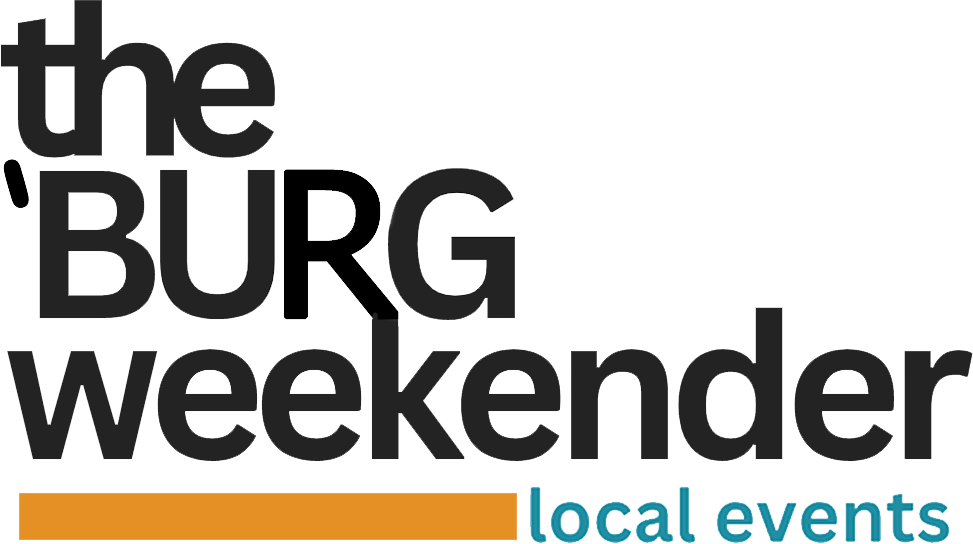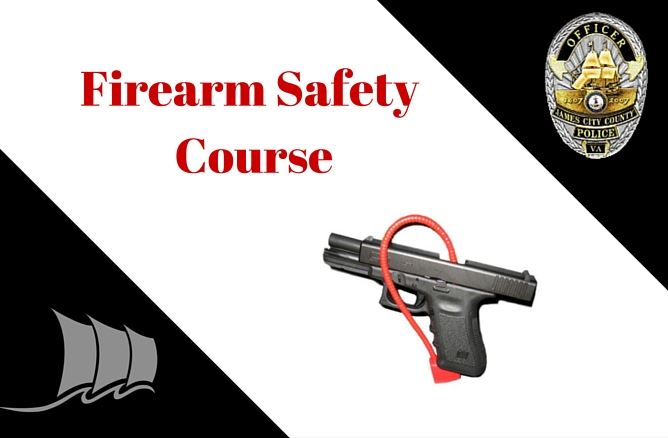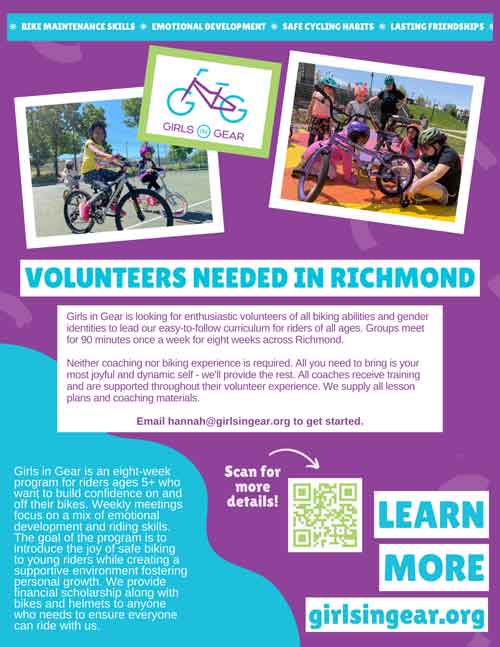Healthy coping vs unhealthy coping with social distancing (and how to know when you need help)

Healthy coping vs unhealthy coping with social distancing (and how to know when you need help)
Written by Madeline Vann, NCC, M.Ed. at White Cloud Therapeutic Services
These weeks of “social distancing” are necessary for the well being of our community – but that doesn’t mean they are easy. In fact, they may be uniquely stressful and lonely. I wanted to take a moment to offer some ideas about healthy coping with this situation in contrast to unhealthy coping, and some guidance about reaching out for help when unhealthy coping starts to take over.
Healthy coping is going to look like:
1. Maintaining or improving the lifestyle you had before social distancing began. Continue to eat healthfully, exercise, hydrate, and get healthy amounts of sleep.
2. Continuing any spiritual practices you have had, or getting more deeply involved in your faith, including praying, meditating, and using online resources for participating in faith activities.
3. Reaching out to friends and loved ones by phone, video chat, or social media. This is an important time to check in with them, particularly those who are older and those who live alone.
4. On balance, being able to enjoy spending more time with your loved ones at home, even with the challenges of new schedules and new priorities.
5. Getting some exercise. Even with gyms and shared spaces closed, you can still workout at home, go on a run or walk on a trail, or have a Dance Party or yoga challenge with your family.
6. Getting some outside time. Fresh air and sunlight do wonders – maybe this is a good time to clean up the winter garden or refresh your pots and get them ready for spring.
7. Finding ways to be creative every day.
Unhealthy coping looks like:
1. Yelling a lot at loved ones or completely shutting down on them and refusing to engage at all .
2. Drinking more alcohol or using more cannabis or other substances than you want to or used to.
3. Obsessively counting calories, working out excessively, or binging/purging food.
4. Becoming physically aggressive or violent with loved ones.
5. Spending too much and justifying it as “retail therapy.”
6. Being unable to enjoy having your loved ones at home, even though you want to be able to enjoy them.
7. Letting things slide, such as paying bills or taking care of other business, because you are feeling overwhelmed.
This is an unprecedented situation that none of us have had to face before, so some of the unhealthy coping approaches are to be expected. Please feel free to reach out if you feel like you need or want some help for yourself, you and your partner, or your family as a whole. Our office and the majority of counseling offices are now offering video-based counseling.
Please call for help if:
1. You realize that your coping style is more unhealthy than healthy, and you want to change it.
2. You are experiencing symptoms of anxiety (intense worrying that prevents sleep and other daily activities) or depression (sadness, hopelessness, getting too much or too little sleep, irritability, eating too much or too little, and more)
3. Call for help immediately if you have thoughts of suicide. The Suicide Hotline is 1-800-273-8255
If you have more questions about what counseling can do for you and your relationships, please give me a call me at 757-276-7069 or drop me an email.
Article was written and sponsored by Resident in Counseling Madeline Vann, NCC, M.Ed. at White Cloud Therapeutic Services





































